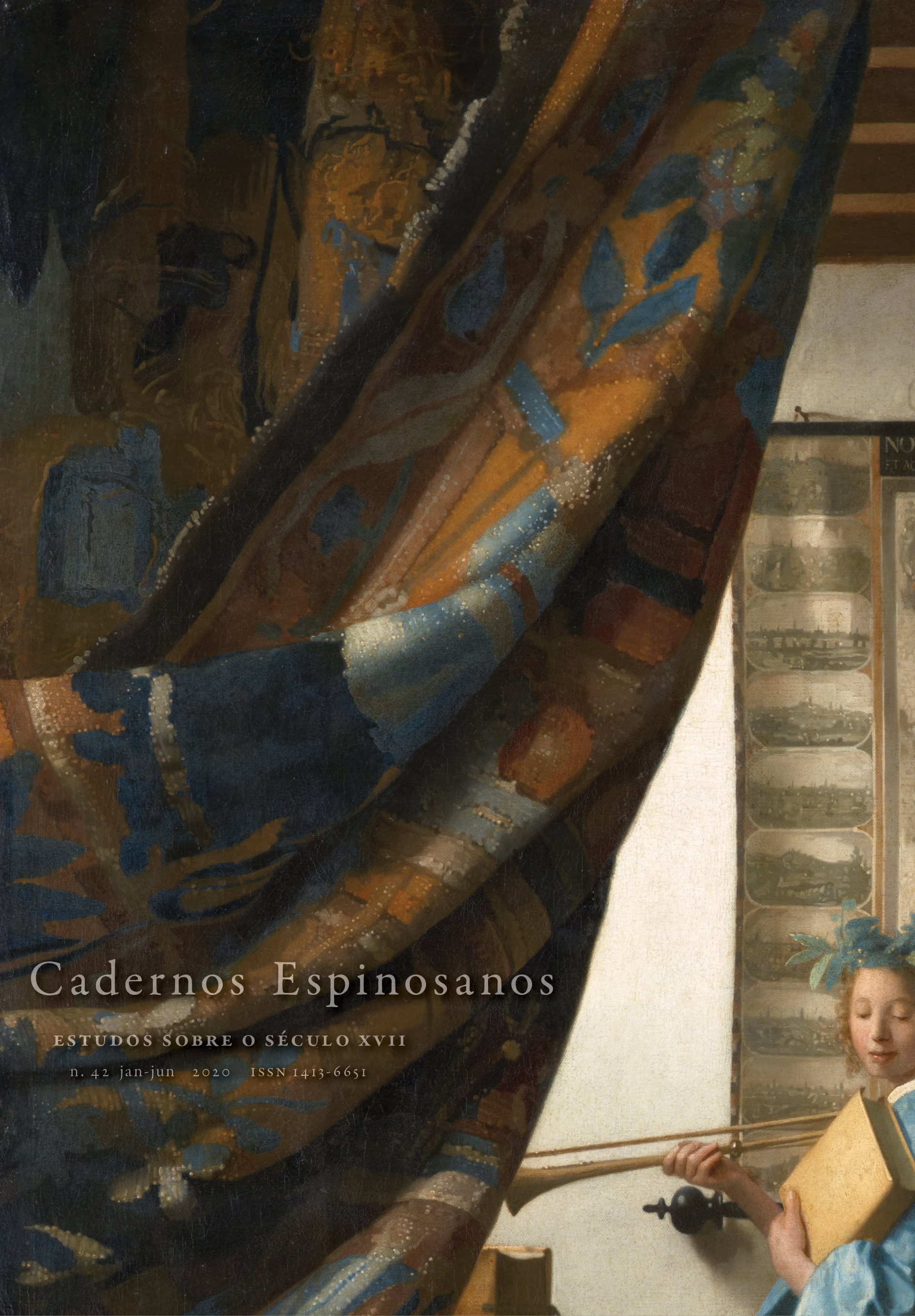SELF-LOVE AND IMAGINATION IN PASCAL
DOI:
https://doi.org/10.11606/issn.2447-9012.espinosa.2020.171651Keywords:
Pascal, Imagination, Self-love, SelfAbstract
The purpose of this article is to examine Pascal’s conception of imagination in its necessary articulation with the notion of self-love. Derived from Augustinian theology, the notion of self-love is identifed with the notion of pride and is one of the three fundamental cupidities that rule the fallen man when he is not under the action of divine grace. Pascal goes further than Augustine and makes this passion the defning feature of the fallen man, leading him in his tyrannical relationship with other men. The instrument of self-love to achieve its goals is, precisely, imagination, a deceptive faculty that, even against reason, estimates the value of all objects and is the essential factor in determining purely human happiness.
Downloads
References
Bras, G., cléro, j-p. (1994). Pascal. Figures de l´imagination. Paris: PUF.
Marion, J.-l. (1986). Sur le prisme métaphysique de Descartes. Paris: PUF.
Pascal, B. (1963). Oeuvres Complètes. Paris: Seuil.
Pascal, B. (1971). Pensamentos. In Os Pensadores. São Paulo: Abril Cultural.
Downloads
Published
Issue
Section
License
Copyright (c) 2020 Cadernos Espinosanos

This work is licensed under a Creative Commons Attribution-NonCommercial-ShareAlike 4.0 International License.
Autores que publicam nesta revista concordam com os seguintes termos:
- Autores mantém os direitos autorais e concedem à revista o direito de primeira publicação, com o trabalho simultaneamente licenciado sob a Licença Creative Commons Attribution que permite o compartilhamento do trabalho com reconhecimento da autoria e publicação inicial nesta revista.
- Autores têm autorização para assumir contratos adicionais separadamente, para distribuição não-exclusiva da versão do trabalho publicada nesta revista (ex.: publicar em repositório institucional ou como capítulo de livro), com reconhecimento de autoria e publicação inicial nesta revista.
Authors who publish in this journal agree to the following terms:
b. Authors are authorized to take on additional contracts separately, to non-exclusive distribution of the article published in this journal (ex.: to publish in institutional repository or as part of a book), with an acknowledgment of its initial publication in this journal.


